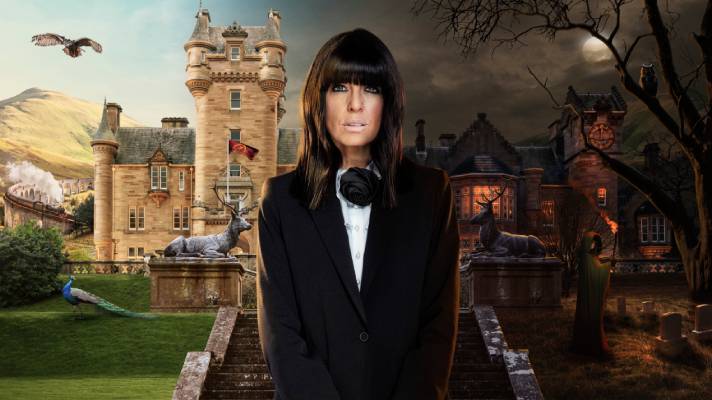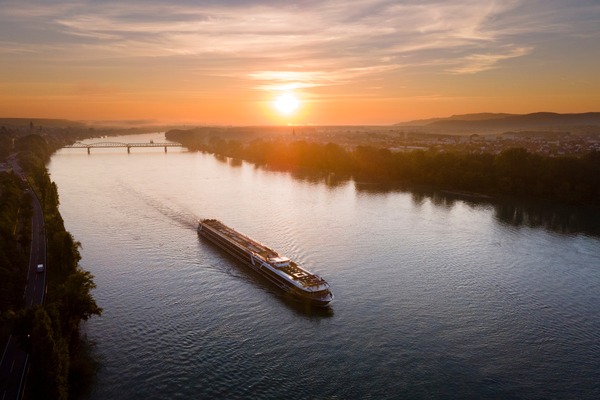Get Travel Leaders Talking with Travel Counsellors' Steve Byrne
Steve Byrne, chief executive of Travel Counsellors, speaks to TTG Media CEO Dan Pearce in the second of our weekly Get Travel Leaders Talking video series – looking at what business and mental health strategies travel’s most senior leaders have used to get them through the Covid crisis.
How have you been looking after your mental health and physical wellbeing over the past few months?
“Initially I just took a bit of time to think. Many of us would have been in travel for a long time but we hadn’t dealt with something like this before... we’d dealt with a lot in travel: ash clouds, tsunamis and the financial crisis, but this was different.
“So I think the first thing was just to take some time to think about what’s the best way of navigating it. On top of that, I think everyone has got an inherent right to make sure that they’re OK – because for you to be able to be there for the people that look to you, that lean on you, that you want to help, you’ve got to be OK too.
“So it’s OK to invest time in yourself. And everyone’s trigger points on that are very different. For me, mental health and physical health go hand in hand. It was important that I kept physically fit because to me being physically fit is going to help me to have a sense of perspective. But everyone will know what their trigger points are. For some people that will be spending time with family or baking... for me it was physical activity. Everyone has to focus on what helps them to feel better about themselves.
“The other thing that I was focused on was trying to only immerse myself in things that are going to be helpful to my own mental wellbeing. It’s critical that we stay informed – but other than that, I’ve been quite disciplined in only absorbing stuff that is going to help me feel positive about the future. So taking those positive mental vitamins in terms of what you read and the company that you keep. Social media is a great example of that, as are traditional publications, both in print and digital. There’s going to be some great positive stuff to take from those. And there’s also the opposite. So take the positives, but leave the negatives.
“I think that the third thing was breaking it down. We weren’t sure how long it was going to go take as it dragged on and on. It was soon clear it was going to take longer than we all expected or would have wanted. And therefore, you know, it’s important that you don’t try to ‘eat the whole elephant’. You break it down into bite-size chunks. It’s important that we set ourselves a goal that if we get to this month, and now that month, we’ll get to this next period of time. You’re dealing with things then and there.
“In the early stages it was about those three things.... firstly being physically fit, so working out what helps you be OK and making sure you have time for that. The second thing is your positive mental betterment: where you spend your time, your influences having a positive influence on you and not a negative influence on you. And the third thing is breaking down the challenge into bite-size chunks.
“But the overriding thing that I’ve done, that I’ve tried to do, is to listen. We’re all human and we’re learning as part of this and need to reflect on this thing that has been so profound for our industry.”
What strategies have you been using to strengthen your personal resilience?
“Resilience is a key skill, isn’t it? As humans we’re not going to be resilient all of the time. So that’s why it’s important to know what your trigger points are and be part of something or be with people who can help you along the way. We all need a shoulder of support with physical family or your friends or your colleagues at work. And I think you want to be part of an environment where you can share that vulnerability. You want that to be met with support and love and kindness and not the opposite. So I think if there’s one lasting benefit of this, it’s the power of community, the power of friendships and the power of relationships.”
What’s been your most challenging moment of the crisis?
“We’ve all in our own way had to deal with things in our personal lives, sadly, and we’ve had to make some tough decisions in business. But you’re always trying to think about the impact on the individual and on the human being. The thing that’s been most constant, the biggest challenge, after 12 months, is not to get dragged into thinking this situation is normal. You’ve got to have a mind on what your goal is and your long-term aspiration. And you’ve got to make sure this doesn’t define the rest of your rest of your life.
“You might need to take some kinks in the road or adjuncts that you haven’t planned, but it doesn’t need to affect the permanent direction that you are going. And I read something lovely at the start of this – that we’re all writing our own stories. This doesn’t have to be the last chapter; it’s just a chapter in our book. It’s a chapter in our relationship together. We’re not going to let this be the last chapter in which we write about our experience in travel, we’re going to move on from this and build something even better. So I think the biggest challenge has been making sure we don’t let this determine what we do and how we operate in future. Let’s focus on the long term in our business and our careers. Let’s not lose sight of that. Let’s make sure this is one chapter in the middle of your book. And that it’s a long way from the end!”
How have you been looking after your team, and your Travel Counsellors? What steps have you put in place to look after their wellbeing in this period?
“The pandemic is essentially a human story, every part of it is about human beings and how it’s affected people. So we put a welfare fund in place. We waived fees for nearly 12 months. We’ve assisted people with low incomes. We’ve provided laptops for children who are being homeschooled. We wanted to put our money where our mouth is and make sure that people are financially OK. And then make sure they feel part of something safe and secure. So we’ve tried to be, you know, visible in our communication and frequent in our communications that people feel part of something that’s real, safe and secure.
“We’ve invested more in mental health. We already offered personal counselling predating the pandemic. We have people who are trained mental-health coaches and counsellors. We use mental health charity to provide one-on-one counselling advice of people free of charge.
“And the community has come into its own in helping each other. Hopefully we’ve provided a culture and a community where people feel comfortable in helping each other and reaching out for help. And the Travel Counsellors themselves have got together and helped each other with top tips on how to get government grants, diet advice and exercise advice. We’ve tried to help with financial support and mental health support, but the power of the community and people coming together in this community to help each other has probably been the single biggest, most tangible thing that’s made the difference to most people in our community.”
Do you have any examples of positive steps your teams have taken to look after themselves?
“They’ve been so resilient and caring for each other, and for their customers. And one thing that binds people in travel together is their commitment to the customer – I think that’s been a constant in all this.
“They’ve created charity initiatives and exercise initiatives to raise money for Ruben’s Retreat, the charity of our choice. They’ve been rating their own dinners. They’ve been cooking every night and sharing that on social media. And then they’ve been setting up self-help groups with, you know, financial advice and other things.
“So there’s been lots going on that they’ve initiated themselves to help each other. And they’ve shown incredible resilience and fortitude in doing that. They’ve been on the roller coaster that everyone in travel has been on, but they’ve have the benefit of being part of something that’s bigger than themselves that I hope has helped them get through, and helped them look forward to a bright future.”
What positive lessons have you discovered about yourself, or the company, during the crisis? Will they change the way you run the business in future?
“Well, I think you’ve got a lasting positive benefit – and I choose my words really carefully given what everyone has been through. But I think it’s true to say there has never been a time in travel when there’s been such a deep appreciation of the power of what a professional advisor can do for their customer. I think that the experience that customers have had, the good and the bad, has only reinforced the value of having a human being looking after and caring for your travel plans, and your wellbeing and your experiences throughout the whole of the travel journey. That is going to see lots of people through as the world opens up to travel again.
“People have gone through a really, really tough time, but they can look forward to a brighter future based on that. The other lasting benefit, not just within Travel Counsellors, but I think more widely, is the power of community. That’s not going to go away – being part of something, whether it be your own family network or your circle of friendships or your business community. It’s not often those communities blend together but people have benefited from that.
“What a perverse world we are in at the moment, where you can have people that have been married for 40 or 50 years, with one person in a care home and the other partner at home and they’ve not been able to go in and hold their partner’s hand. That’s how abnormal this has been? So people have been reminded of the power of community, the power of relationships and the power of friendships in quite a profound way. And I think that’s going to last for some time.”
For more mental health resources visit TTG’s Mental Health Hub and look out for more Get Travel Leaders Talking videos being released every Wednesday.
Sign up for weekday travel news and analysis straight to your inbox

Tom Parry
Supplier Directory
Find contacts for 260+ travel suppliers. Type name, company or destination.












